Conflict
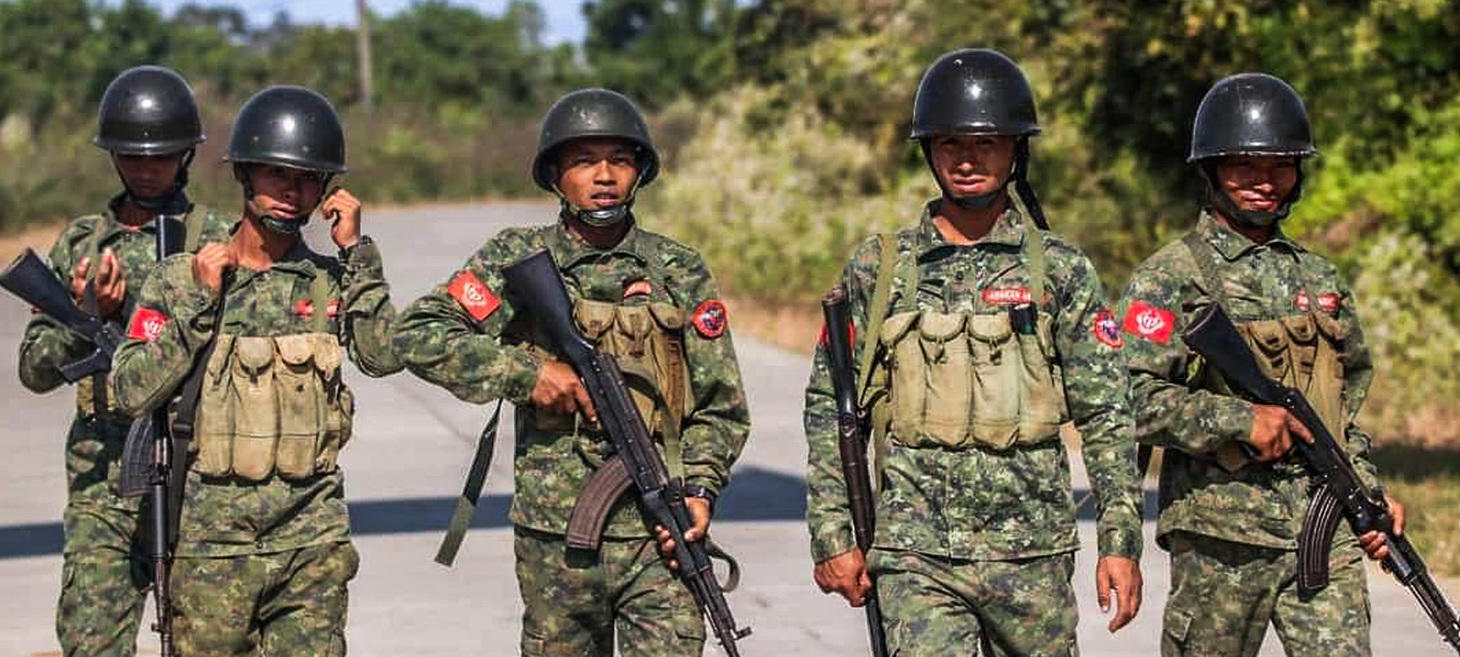
In Myanmar, The War For Rakhine Has Reached Its Southernmost Tip
The conflict in Myanmar's Rakhine State has escalated as the Arakan Army (AA) pushes the Myanmar military to the southernmost regions, particularly in Gwa Township. The junta has responded by sending reinforcements and utilizing a new road through the Arakan Mountains to bolster their positions. Despite these efforts, the AA has made significant advances, capturing key towns and instilling fear among junta troops. The conflict has led to significant displacement and casualties, with residents fleeing the violence and junta airstrikes causing further destruction and loss of life. The situation remains tense as the AA continues its campaign to drive out junta forces completely from the state.
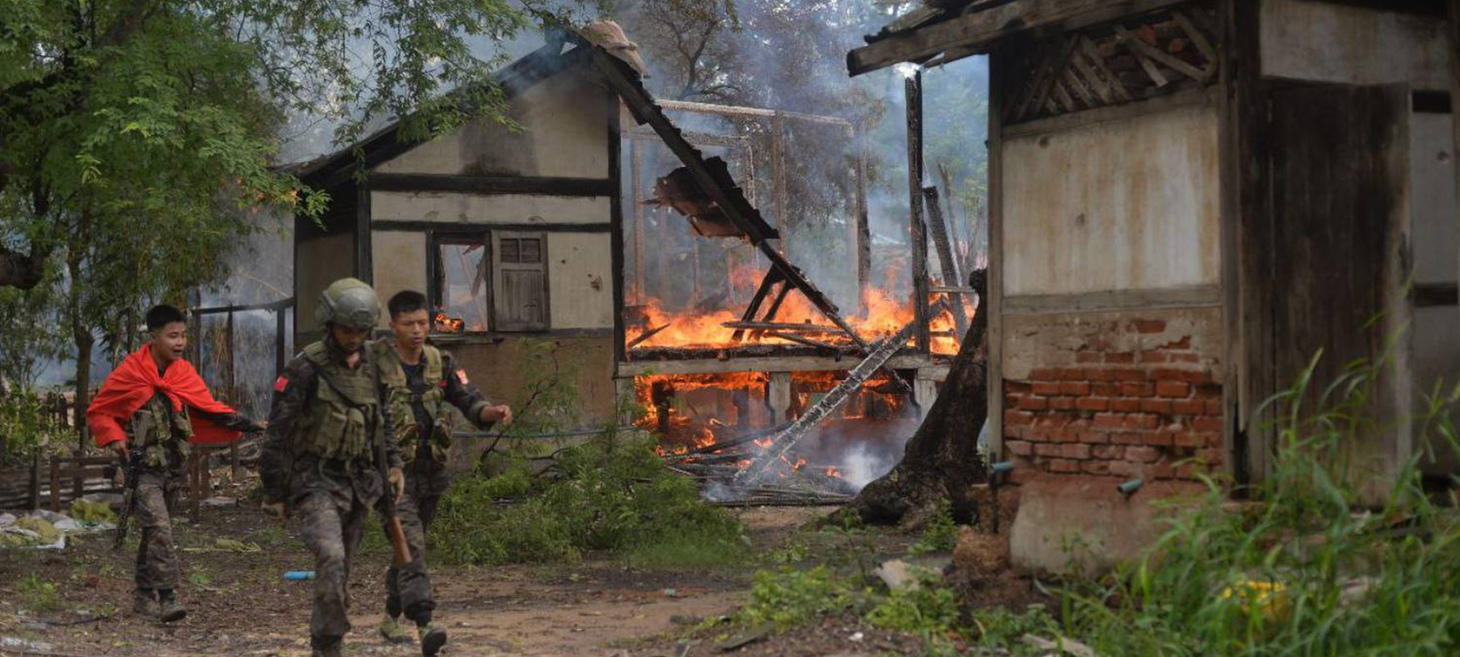
Myanmar Junta Recaptures Depayin Town From Resistance Forces
The Myanmar military junta successfully recaptured Depayin town in Sagaing Region after a brief seizure by People’s Defense Force (PDF) groups and other anti-regime forces. The town, strategically significant and located about 65 km from the Northwestern Command in Monywa, was initially taken by combined resistance forces, who launched their attack targeting junta troops and allied militias. The junta responded by airlifting approximately 140 troops and providing air support with an Mi-35 gunship, managing to reclaim the town by Sunday evening. This military action resulted in the death of about 20 junta soldiers, and several civilians were detained in the aftermath as the junta attempted to stabilize its regained position.
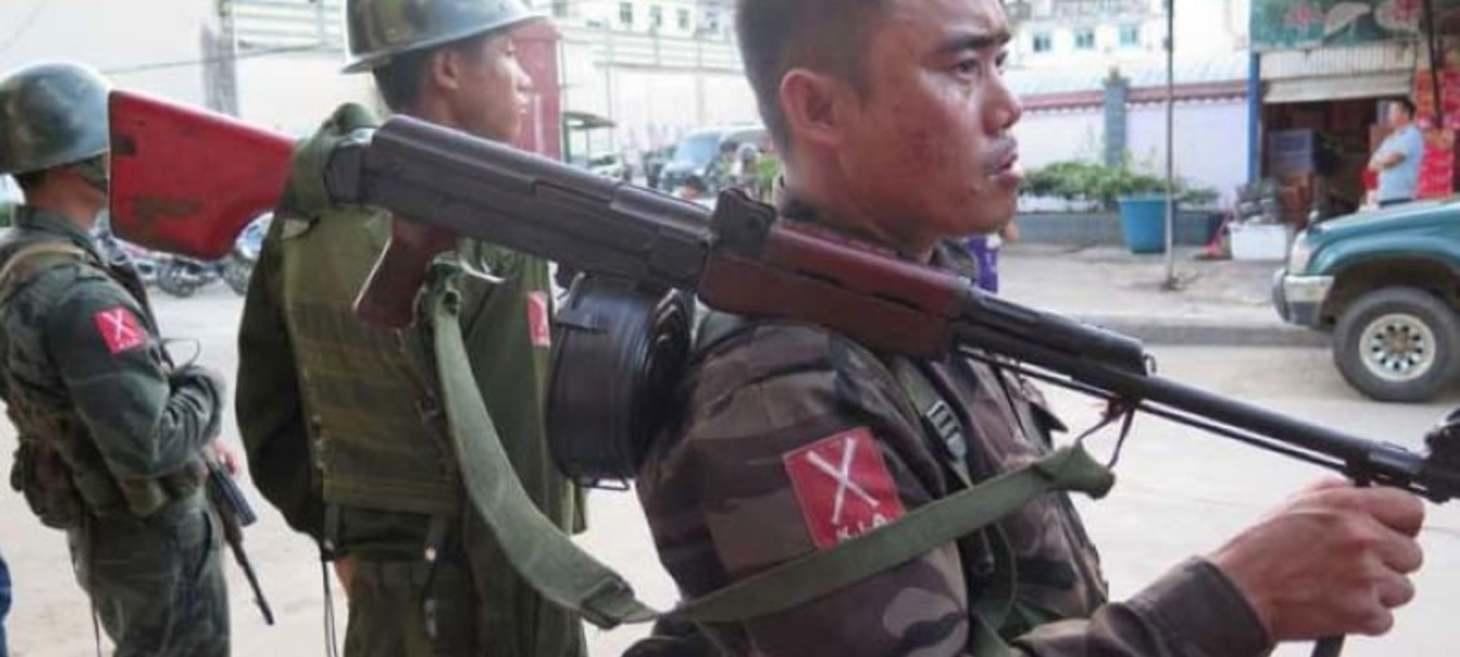
KIA seizes strategic Hpakant hill stations, captures a dozen junta soldiers
On August 15, 2024, the Kachin Independence Army (KIA) captured two strategically significant hill stations in Hpakant township, Kachin State, from Myanmar's Military Council, marking a notable victory. These stations, La Maung and Tawhmaw, were essential for the military's control over the region and included key security outposts. The operation, which began at approximately 9:00 am and concluded by 4:00 pm, resulted in the capture of 12 junta soldiers and a significant cache of weapons. This action is part of ongoing conflicts in the area, highlighting the KIA's strategic advances against the Military Council's forces.

In Myanmar’s heartland, a campaign of fire and fury caught on camera
On June 6, 2024, Myanmar junta forces committed a massacre outside Sittwe, killing scores of civilians. This brutal act is part of a broader pattern of violence and suppression by the junta since the military coup, which has also led to significant economic repercussions, including the closure of over 25,000 businesses. Despite the ongoing violence and instability, the junta leader insists that elections will proceed. The situation has been exacerbated by a severe petrol and diesel shortage, crippling the economy in Myanmar's largest cities. Additionally, efforts to prevent workers from going abroad and increased military actions against anti-junta forces in northern Shan State highlight the regime's desperate attempts to maintain control amidst widespread resistance and international condemnation.
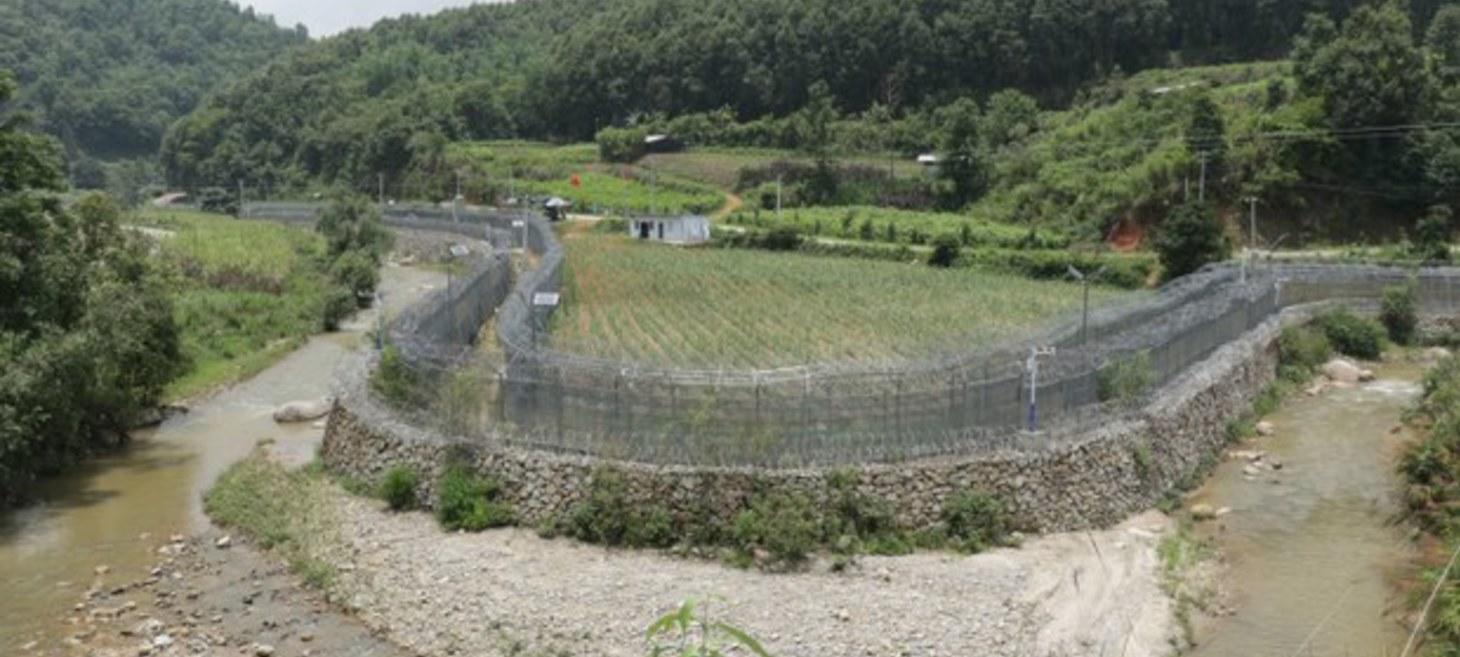
China fires into Myanmar after junta airstrike on border, group says
China fired warning shots across its border into Myanmar in response to Myanmar military airstrikes on the Kachin Independence Army (KIA) headquarters near the border. This action followed the KIA's capture of junta positions in Hpakant township, escalating tensions. The Chinese military's response, characterized by loud explosions and multiple firings, was driven by security concerns and the proximity of the conflict to Chinese territory. China, which has significant economic interests in Myanmar including energy pipelines and natural resources, maintains a complex relationship with both the Myanmar junta and ethnic minority groups along its border. Despite its close ties with the junta, China has also brokered ceasefires and pushed for dialogue, reflecting its strategic interest in stabilizing the region to safeguard its investments and limit Western and Indian influence.
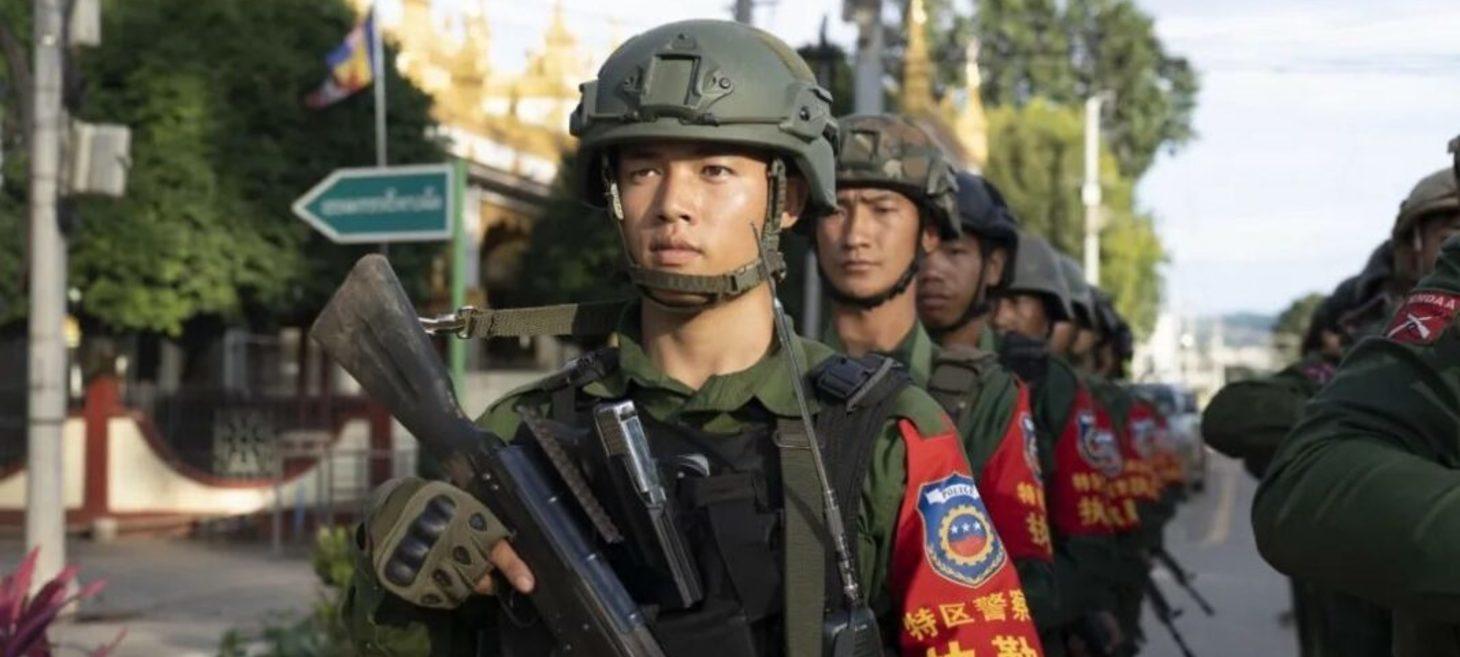
MNDAA seizes junta’s 147th Light Infantry Battalion in Hsipaw, Shan State
On August 13, 2024, the Myanmar National Democratic Alliance Army (MNDAA) successfully captured the junta’s 147th Light Infantry Battalion (LIB-147) in Nawngkawgyi Village, Hsipaw Township, Shan State. This strategic victory occurred after intense fighting that began on July 26, resulting in casualties on both sides. The capture of LIB-147 by the Kokang ethnic armed group not only signifies the control of Nawngkawgyi Village but also highlights the broader conflict dynamics in the region, where junta forces continue to engage in fierce battles with other ethnic armed groups like the Ta’ang National Liberation Army (TNLA) and the People’s Defense Force (PDF). The ongoing conflict has led to significant civilian casualties and widespread safety concerns among the local population due to indiscriminate shelling by junta forces.
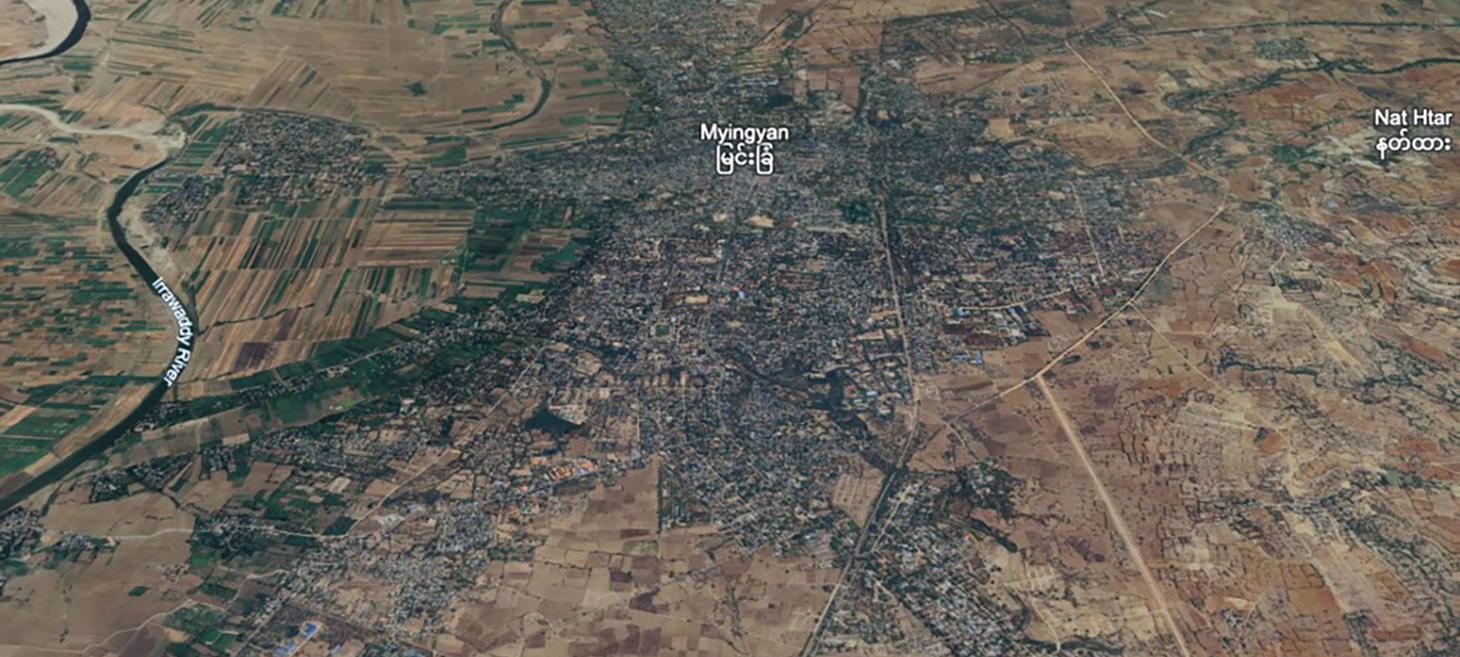
Myanmar Junta Loses Grip on Major Mandalay Region Town: Resistance
The Myanmar junta has lost control over significant areas in the Mandalay Region, particularly in Myingyan and Natogyi towns, due to effective operations by various resistance groups including the Myingyan People’s Defense Force (PDF). These groups have launched successful attacks against junta positions, leading to the temporary cessation of regime administration in these towns. The junta's response has involved intensifying airstrikes and shelling in the affected areas, causing fear and instability among local residents. Despite the junta's efforts to fortify positions within Myingyan, including strategic locations like hospitals and homes for the aged, the resistance continues to control many rural areas and conduct security operations, significantly challenging the junta's grip on the region.
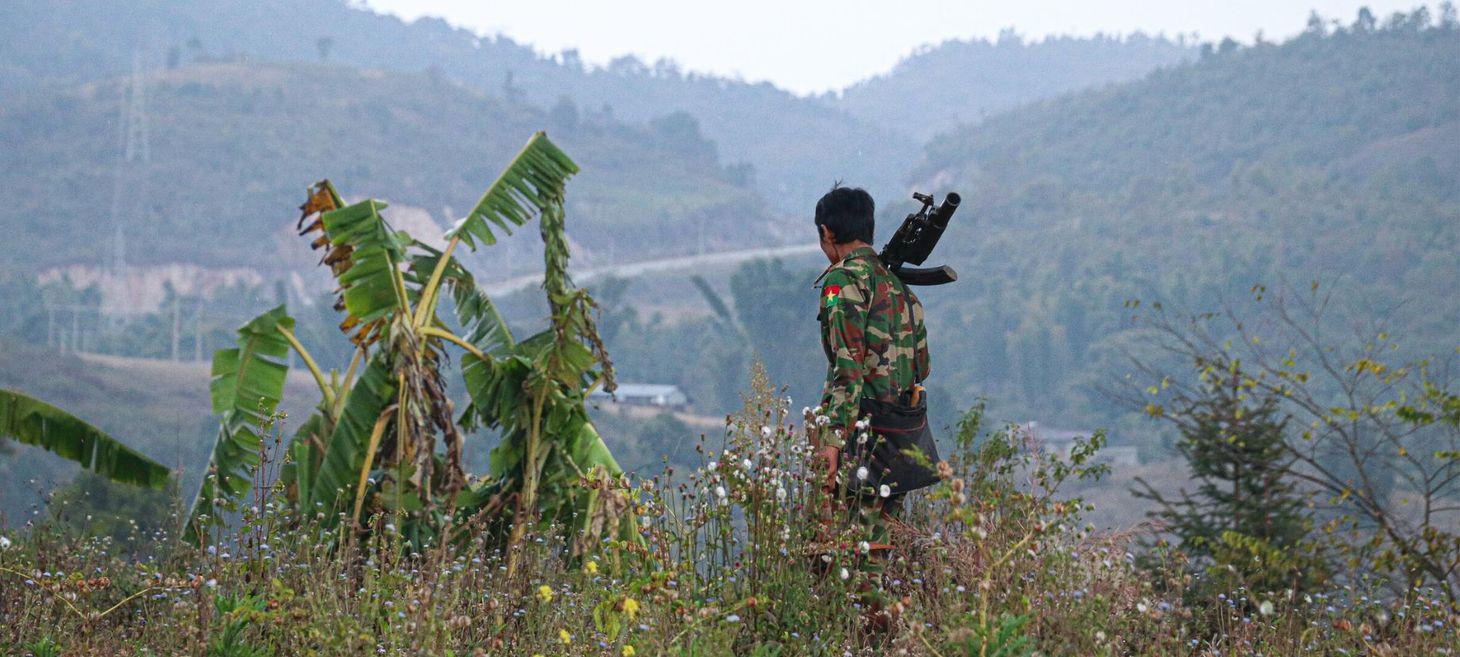
KIA captures key junta bases near the jade-mining centre of Hpakant
On August 16, 2024, the Kachin Independence Army (KIA) successfully captured two strategic junta bases near Hpakant, a major jade-mining center in Myanmar. The bases, La Mawng and Taw Hmaw, were overtaken after intense clashes that began early on the previous day. This victory is part of a broader pattern of territorial gains by the KIA and its allies, who have been increasingly effective against junta forces. The junta responded with airstrikes and heavy artillery from a nearby base, but these efforts failed to prevent the KIA from securing the positions. This development underscores the ongoing and escalating conflict in the region, which continues to challenge the junta's control over key areas.
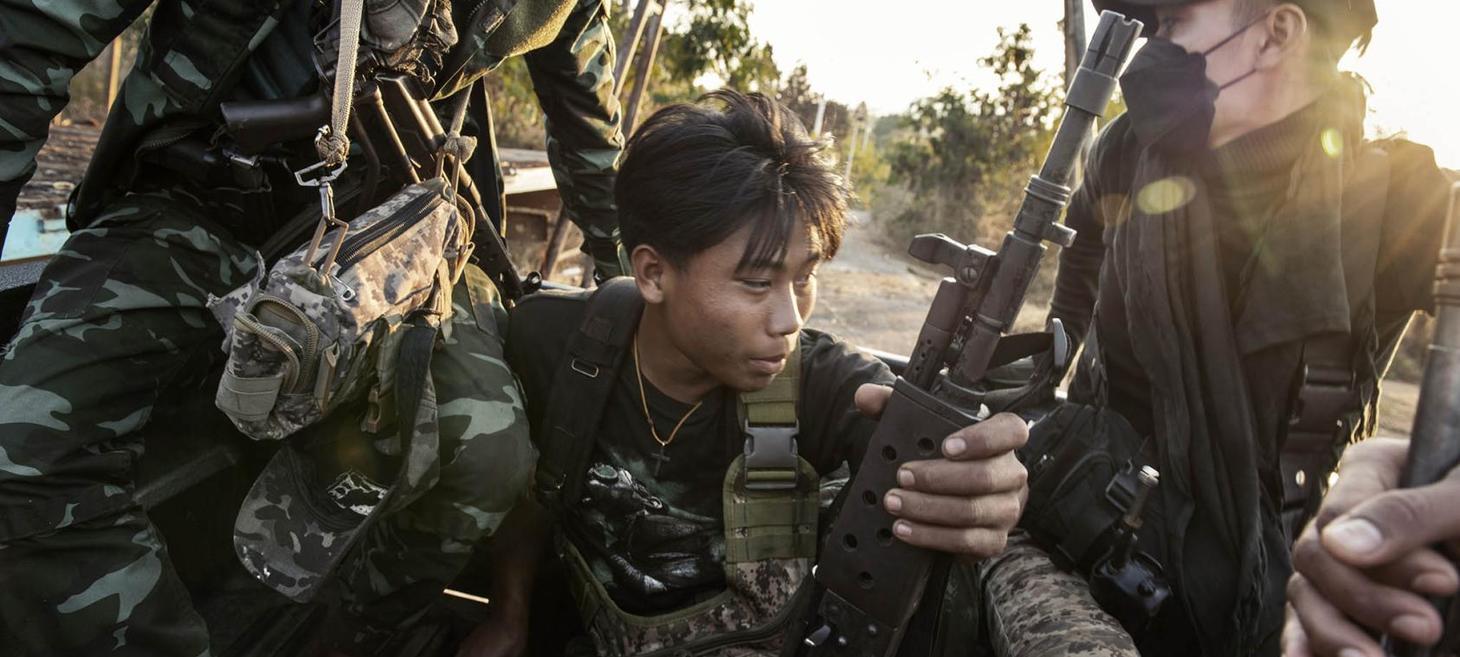
Myanmar’s Resistance Is Making Major Advances
The resistance forces in Myanmar, particularly after capturing the strategic city of Lashio on August 3, 2024, have significantly weakened the military junta's control, marking a pivotal shift in the ongoing conflict. This victory in northern Shan State, which involved intense urban warfare and the capture of the Northeastern Regional Military Command, represents a historic setback for the junta, highlighting its deteriorating capability and morale. The resistance's success is part of a broader trend of gains across various regions, challenging the junta's dominance and undermining its position as a national army. Despite superior military resources, the junta's forces are increasingly seen as just another group among many armed factions in Myanmar, struggling to maintain control and facing widespread public and internal discontent. This shift is empowering the resistance to advance further into central Myanmar, aiming for a significant reconfiguration of power in the country.
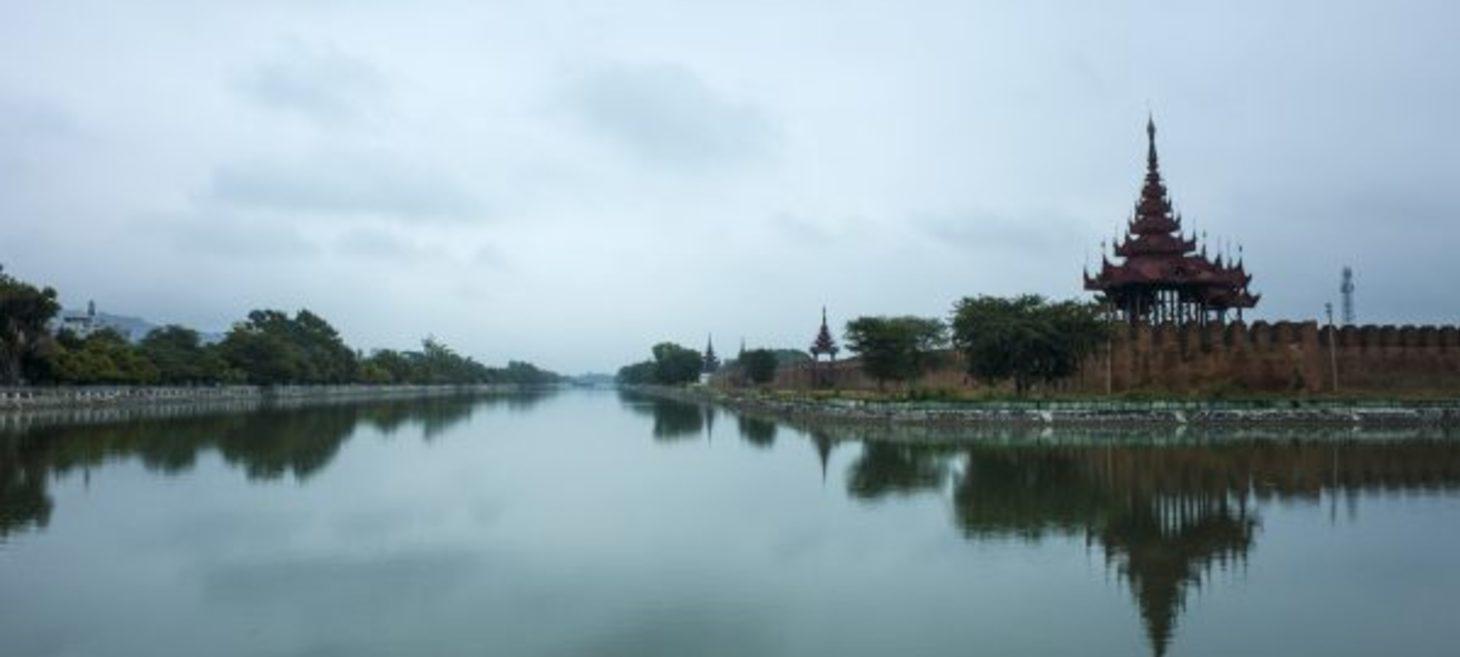
Myanmar’s Rebel Militias Redeploy Towards Mandalay
Following the strategic capture of Lashio, Myanmar's rebel militias, including 20 Ethnic Armed Organizations (EAOs) and their allies from the People's Defense Force (PDF), are redeploying towards Mandalay with the aim of seizing control by the end of 2024. This redeployment is bolstered by recent victories across Myanmar, where these groups now control nearly all ethnic states and significant territories along international borders. The focus on Mandalay, a key cultural and historical center, is part of a broader strategy to challenge the military junta's stronghold in the Irrawaddy Basin, which includes Yangon and Naypyidaw. The fall of Mandalay is anticipated to shift international political dynamics, potentially favoring the exiled National Unity Government (NUG) and impacting regional relations with major players like India, China, and ASEAN.
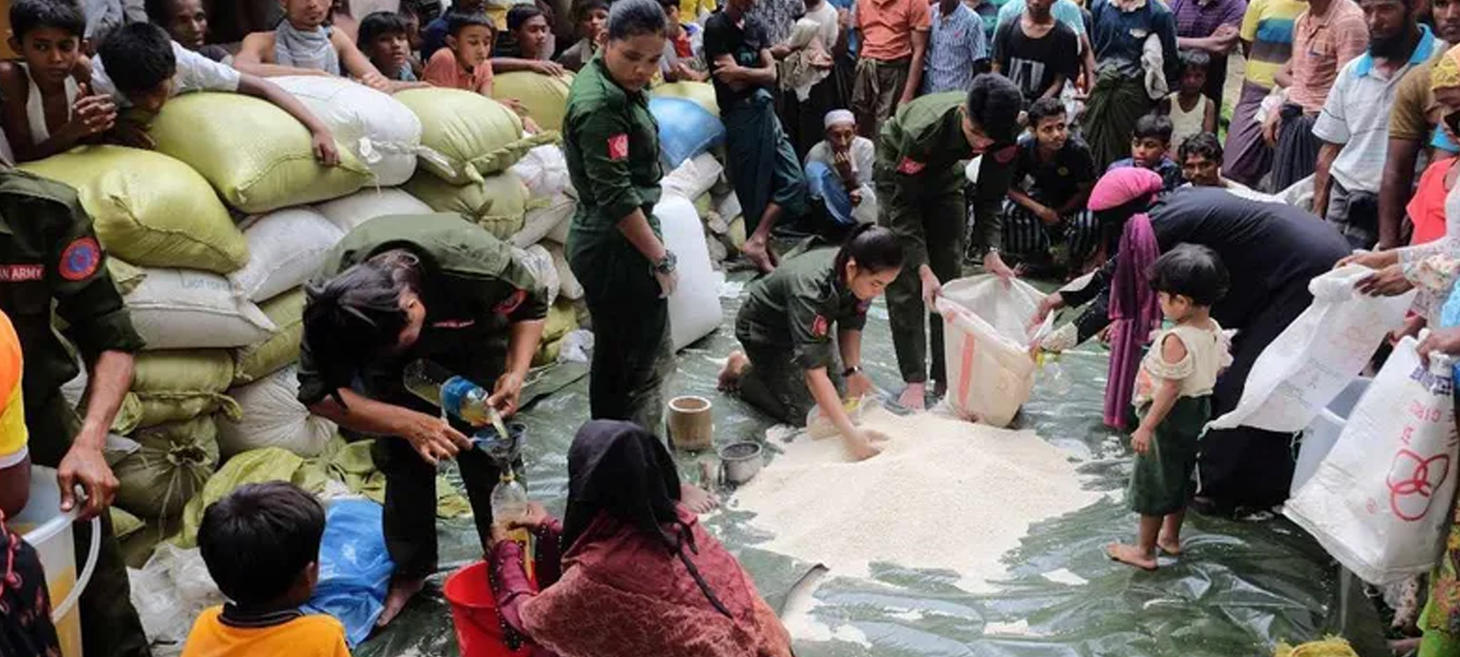
AA Seizing Last Myanmar-Junta Controlled Town in Northwestern Rakhine
The Arakan Army (AA) has nearly completed its takeover of Maungdaw, the last frontier town in northern Rakhine State under Myanmar junta control, following a series of strategic attacks that began in early June. This offensive is part of a broader campaign where the AA previously captured nearby towns, consolidating their hold over the region. The conflict has intensified with the AA and junta forces engaging in fierce battles, leading to significant junta casualties and the use of heavy artillery and airstrikes by the regime. The AA's actions have also included humanitarian efforts, reportedly rescuing over 2,000 civilians, including international aid workers and their families, amidst ongoing clashes. This takeover marks a significant shift in control, further weakening the junta's grip on the region.
Conscription
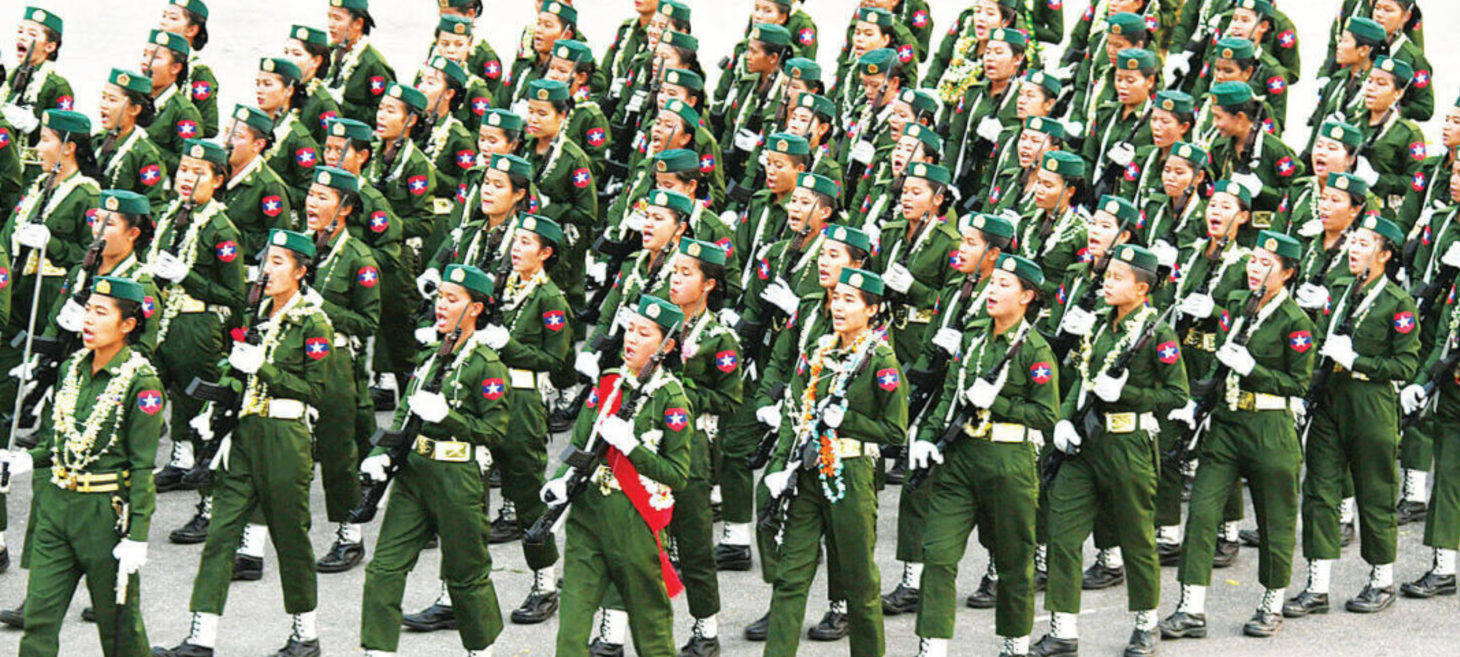
Conscription of women to start in Hopong Township, Shan State
In Hopong Township, southern Shan State, the Myanmar military junta is initiating a new round of conscription, targeting women to serve in the army. This move has sparked fear and evasion among the local female population, particularly as this marks the fourth round of conscription in the area. The junta plans to conscript 5,000 individuals in each of the four national rounds annually, totaling 20,000 conscripts annually. This policy has disrupted the lives of many, including young women who have been unable to attend school since the coup, highlighting the broader impacts of the junta's policies on education and personal security in conflict zones.
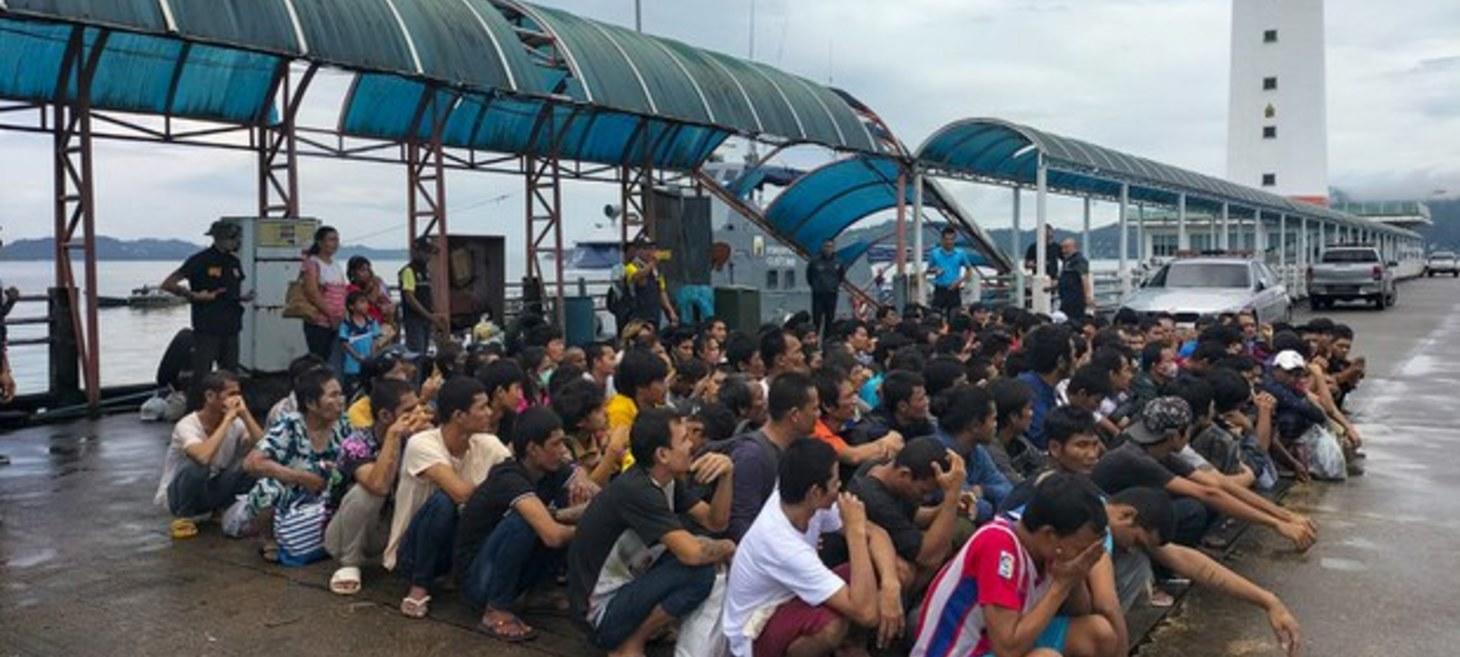
Junta forcibly recruits dozens of Myanmar nationals deported by Thailand
Myanmar's junta has been forcibly recruiting Myanmar nationals deported from Thailand, particularly targeting those repatriated from Ranong Prison. Amidst a backdrop of significant military losses and widespread defections, the junta implemented a conscription law demanding military service from young men and women, which has led to mass emigration to avoid conscription. On specific dates in July and August 2024, over 270 deportees were returned to Myanmar, with at least 71 immediately detained for military service, despite some managing to avoid conscription through bribes. This practice has been criticized as a severe violation of human rights, with the shadow National Unity Government condemning the actions and the lack of protection offered by Thai authorities. The situation underscores the junta's desperation as it continues to lose ground to rebel forces and faces international condemnation.
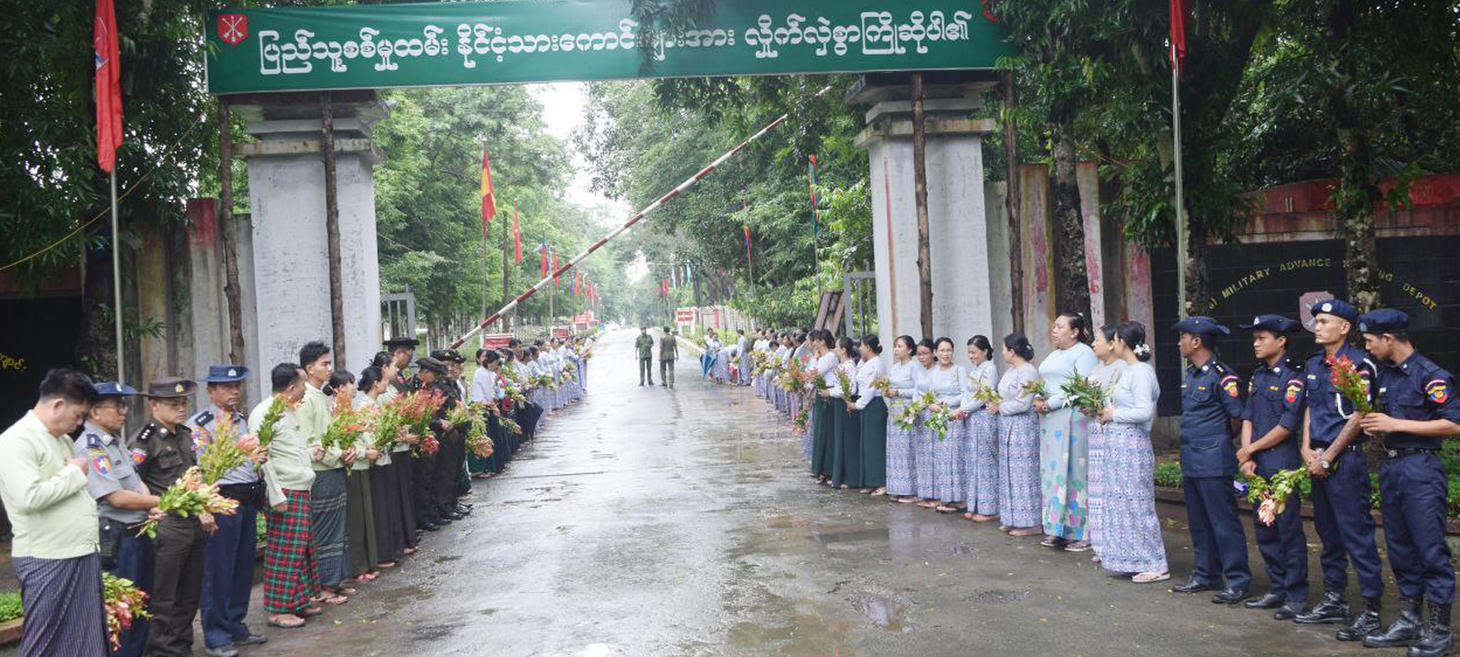
Myanmar Junta Targets Young Men in Mandalay with Nighttime Conscription Raids
In Mandalay, Myanmar, the military junta has intensified its conscription efforts through nighttime raids targeting young men in several townships. These raids, conducted under the guise of overnight guest inspections, have led to the abduction of approximately 50 young men this month alone. The junta's forces, comprising soldiers, police, and allied militias, forcibly enter homes, often taking family members hostage if the intended conscripts are not found. This aggressive conscription drive is part of the junta's broader strategy to bolster its ranks amid ongoing conflicts, causing significant distress among the local population and exacerbating the humanitarian crisis in the region.
Crime & Narcotics
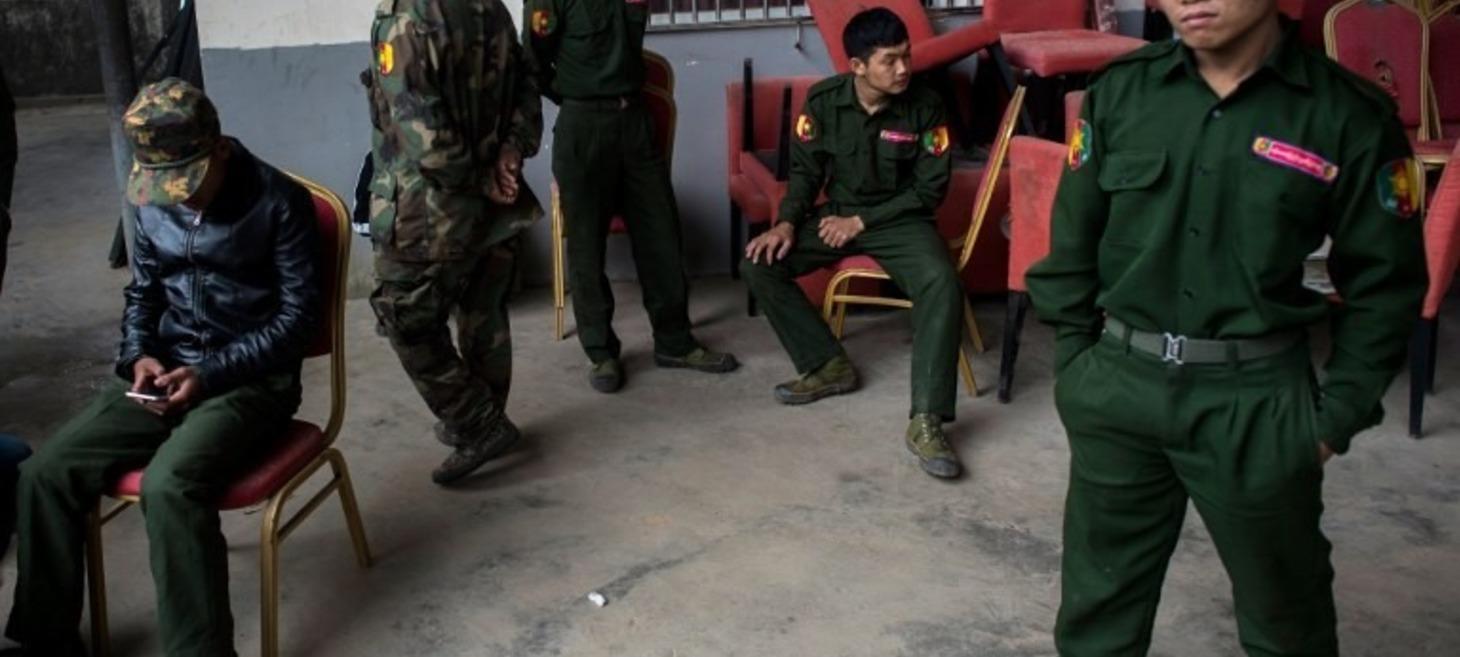
Militia security guards kill and rob rich employer of over 600 million MMK in Muse home
In Muse Township, northern Shan State, a tragic incident occurred where three militiamen, initially hired as security guards, murdered the homeowner and two of his family members over a dispute involving a large sum of money. The militiamen then fled with over 600 million MMK. This violent act has intensified the existing fears among the wealthy in Muse, leading them to reconsider the safety of employing militia members as security personnel. The local junta authorities are actively searching for the suspects amidst a backdrop of ongoing military conflicts and frequent kidnappings targeting affluent individuals in the region.

Myanmar: 29,500 kg of controlled chemicals seized - Lokmat Times
In Myanmar's eastern Shan State, authorities seized a significant amount of controlled chemicals, specifically 29,500 kg of ammonium nitrate, following a tip-off that led to a vehicle search in Loilem town on August 17. The chemicals, valued at approximately 590 million kyats (around $280,000), resulted in the arrest of a suspect under charges of drug trafficking according to the country's Narcotic Drugs and Psychotropic Substances Law. This operation is part of broader efforts to combat drug trafficking in the region, as evidenced by additional recent seizures totaling over 700,000 stimulant tablets in the Sagaing and Magway regions, highlighting ongoing challenges in controlling drug-related activities in Myanmar.
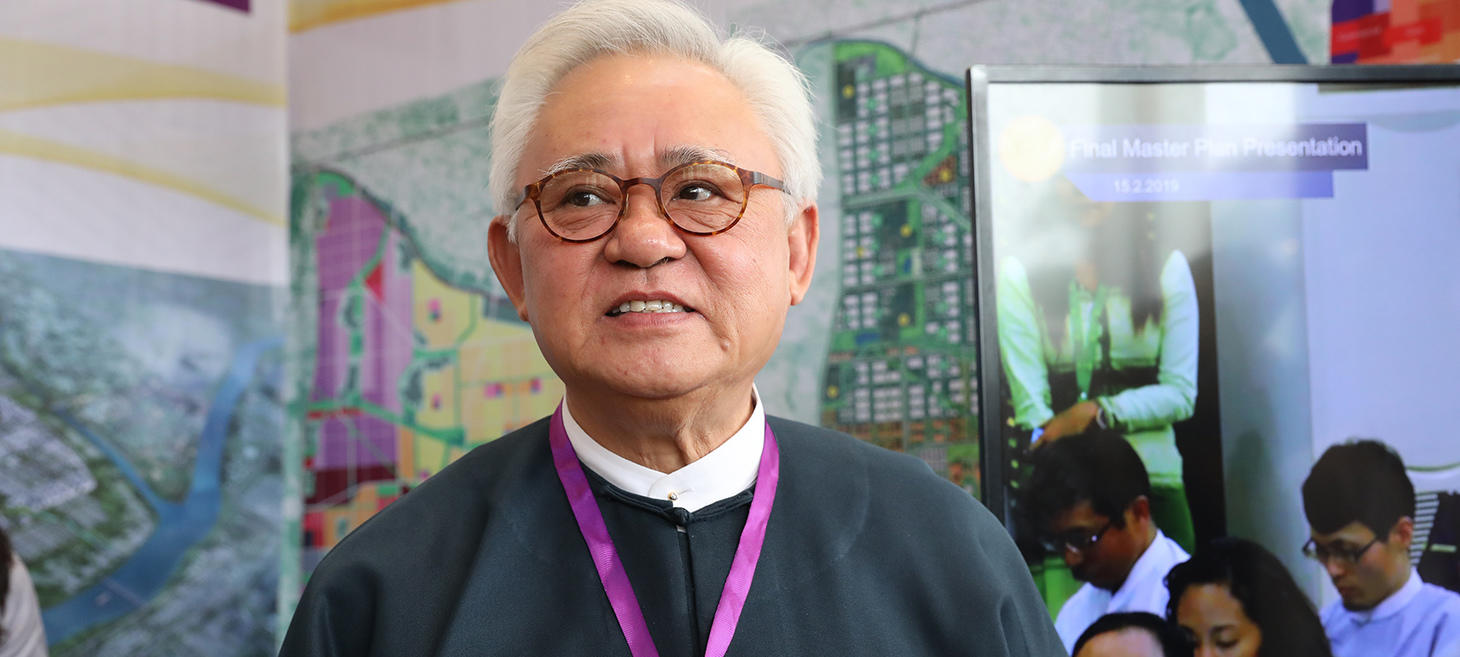
Myanmar Junta Charges Tycoon Serge Pun With Money Laundering, Other Financial Crimes
Serge Pun, a prominent Myanmar tycoon and former executive chairman of Yoma Strategic Holdings, has been charged with money laundering and other financial crimes by the Myanmar junta. After a month-long detention, Pun faces additional accusations of misusing public funds and damaging national interests through investments in a major real estate project, Star City, in Yangon. These charges are part of a broader crackdown on financial activities, with several executives from Pun's Yoma Bank also facing prosecution. This situation highlights the junta's ongoing efforts to control economic activities and assert authority over prominent business figures in Myanmar amidst a backdrop of political and economic instability.
Economy
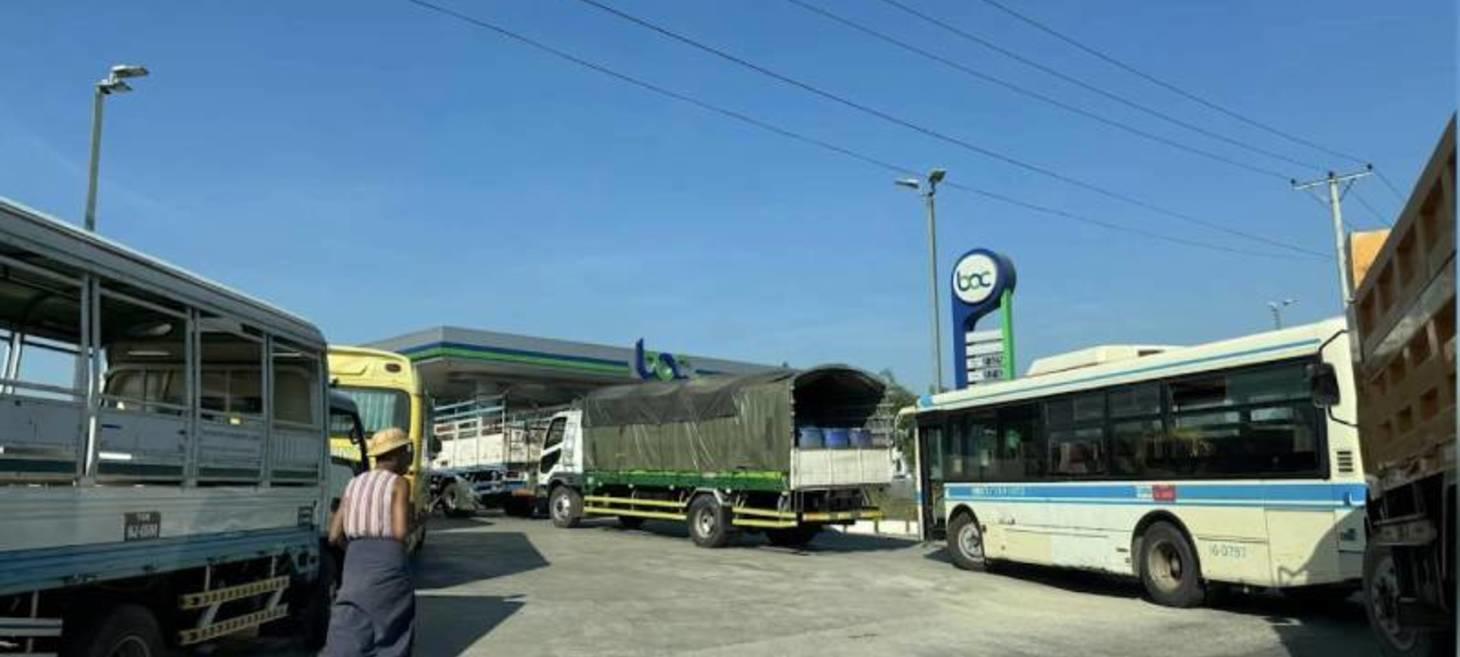
Severe fuel shortage grips Myanmar, affecting major cities and businesses
Myanmar is grappling with a severe fuel shortage that has escalated recently, causing long queues at fuel stations across major cities like Yangon, Mandalay, Nay Pyi Taw, and Mawlamyine. Social media users have detailed their struggles, with some waiting up to two nights just to buy fuel, and others resorting to paying exorbitant prices on the black market. The shortage has disrupted daily life and business operations, leading to the suspension of online vendor activities and temporary closures in the food sector. Despite the Central Bank of Myanmar announcing a $100 million support plan for fuel companies, the lack of details and a timeline has left many skeptical about the resolution of the crisis. The situation is further compounded by the inability of fuel trucks to access supplies from Yangon’s Thilawa port, leaving many areas without essential fuel supplies for basic and urgent needs.
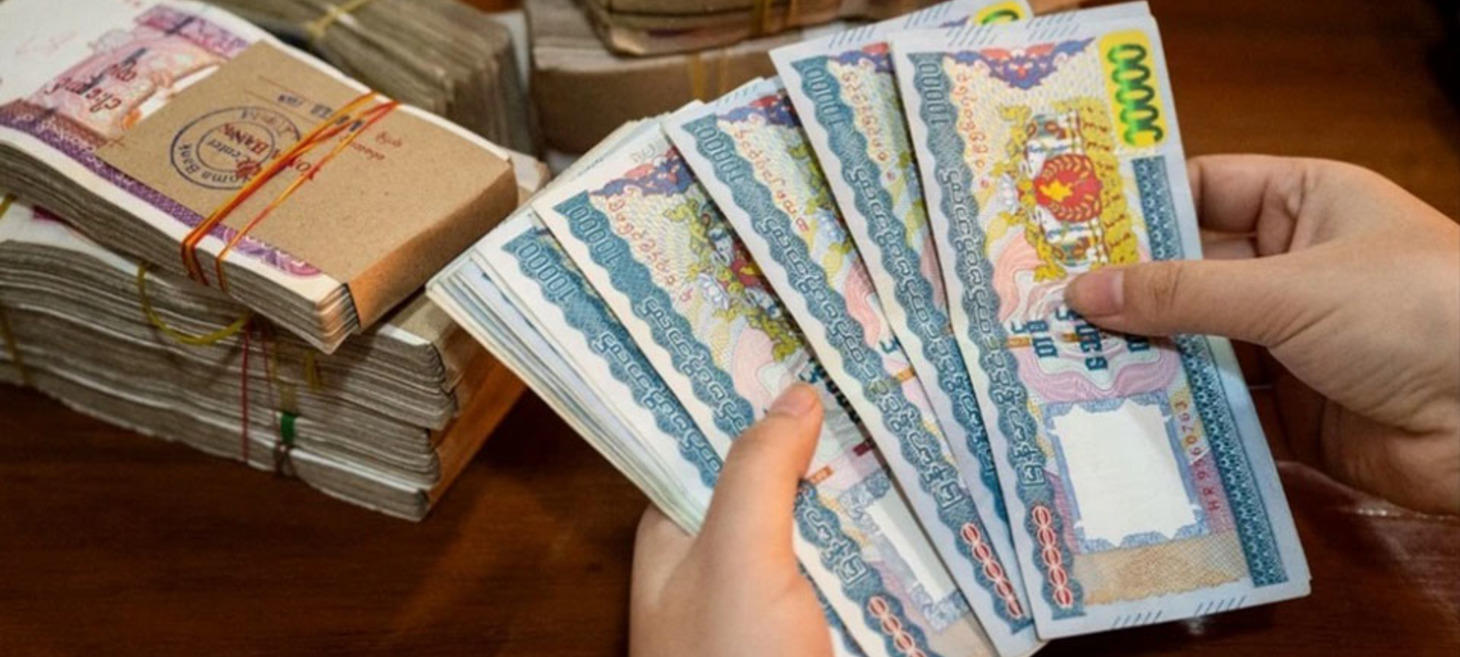
Myanmar's Central Bank injects 100 million US dollar to aid fuel importers amid currency crisis
In response to Myanmar's deepening currency crisis and the resultant fuel shortages, the Central Bank of Myanmar has decided to inject $100 million into the foreign exchange market to aid fuel importers. This financial intervention aims to stabilize the kyat, which has significantly devalued against the US dollar since the military takeover in 2021, complicating payment processes for fuel shipments. The severe depreciation has led to widespread fuel shortages, affecting residents, businesses, and essential services across the country, including hospitals that rely on generators due to frequent power outages. However, the Central Bank has not specified the timing or the exchange rate for this injection amidst a backdrop where the official rate starkly contrasts with the higher black-market rate. This measure follows previous attempts to control the economic downturn, including actions against fuel hoarding and other financial injections to manage the kyat's value.
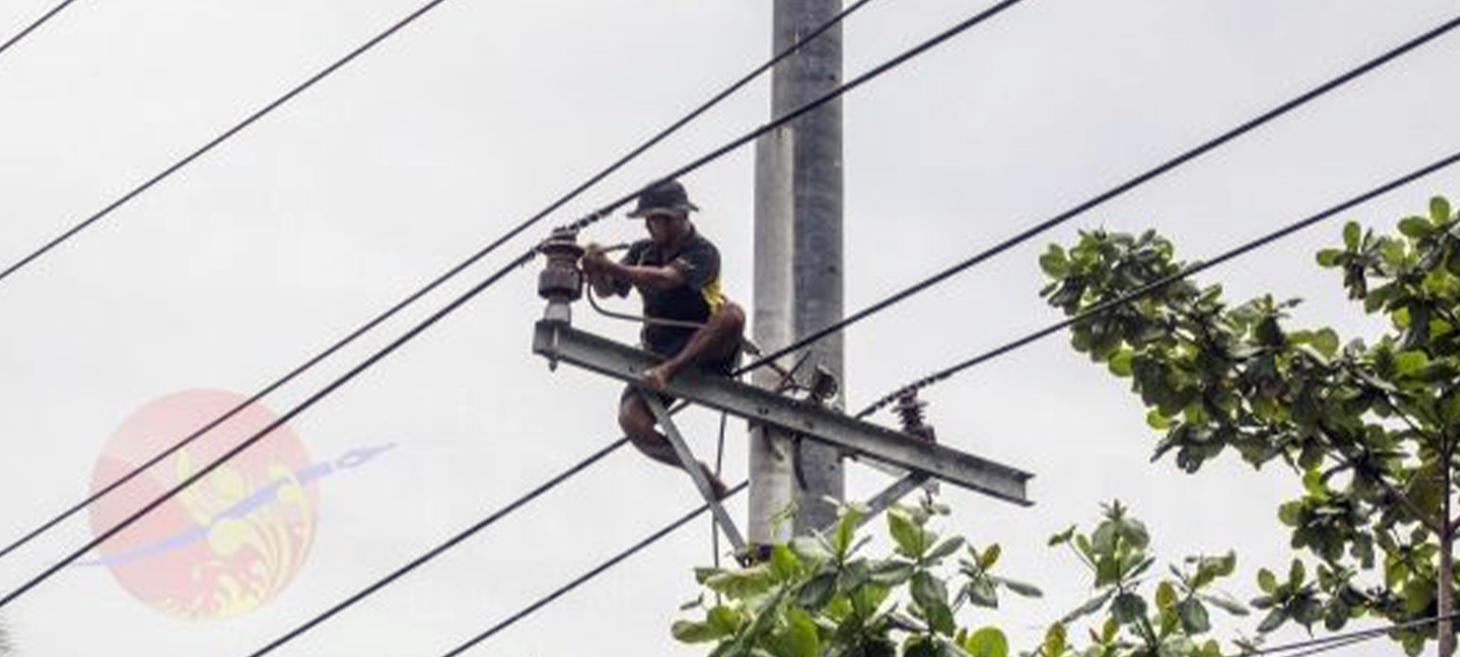
Myanmar is Running Out of Power; Post-Coup Blackouts Intensify
Myanmar is grappling with severe power shortages and intensifying blackouts post-coup, particularly affecting Yangon, the country's most populous region. The situation worsened after the suspension of operations at Sembcorp's 225 MW gas-fired power plant in Myingyan Township, Mandalay, due to safety concerns amid ongoing unrest. This suspension and issues at other gas-fired plants have significantly reduced power supply, cutting 4,920-megawatt hours from the national grid. These disruptions are exacerbating Myanmar's already frequent power cuts, impacting daily life and economic activities. Yangon is experiencing prolonged blackouts despite the monsoon season, which usually sees a reduction in power shortages due to increased hydropower generation.
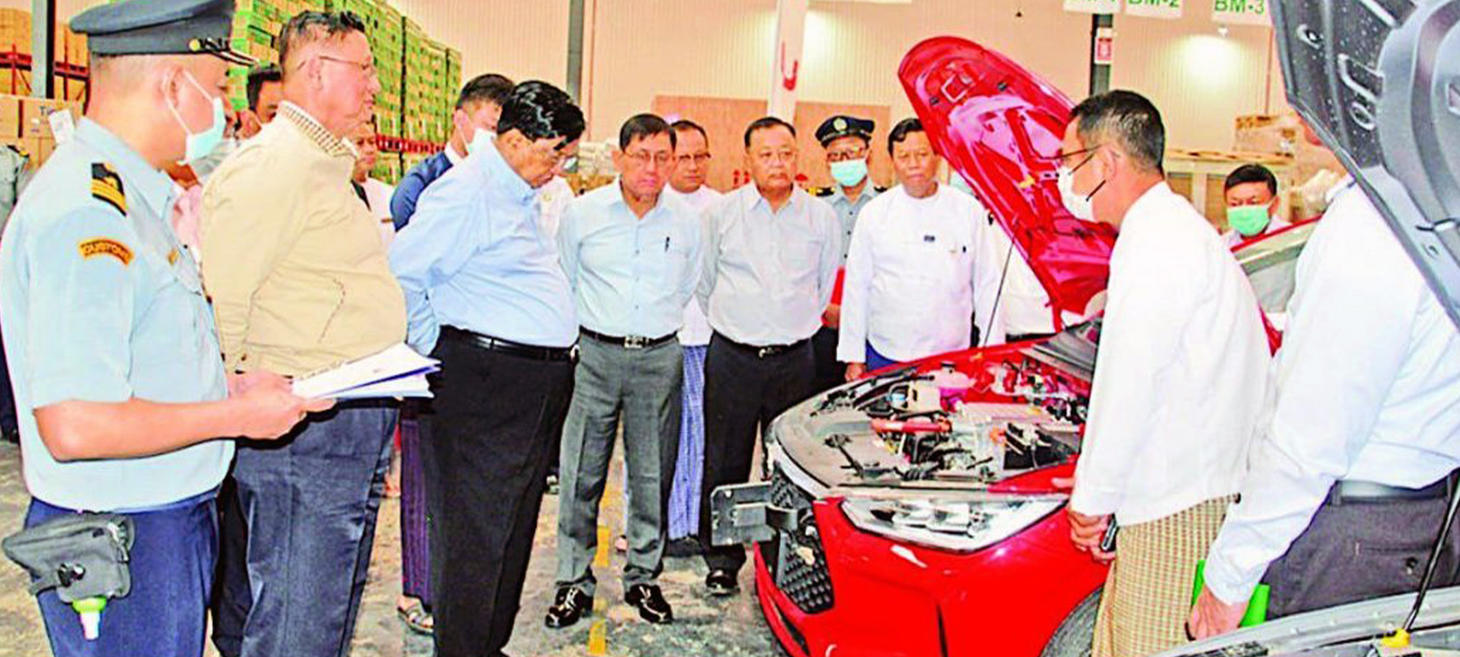
Plug-in Cronies: How the Junta Chief’s Children Are Powering Myanmar’s EV Market
In Myanmar, the electric vehicle (EV) market is significantly influenced by the children of junta chief Min Aung Hlaing, who have capitalized on their positions to dominate this emerging sector. Aung Pyae Sone and Khin Thiri Thet Mon, through their respective companies, have become major players in importing EVs, facilitated by exemptions from commercial and special goods taxes, making EVs easier to import compared to other goods. The junta's control over foreign exchange and import approvals supports this privileged market position, ensuring that the EV business thrives amidst broader economic controls. Their involvement underscores the intertwining of political power and business in Myanmar and highlights the junta's strategy of using economic levers to consolidate power and benefit the elite, even amidst widespread power shortages that affect the general population.
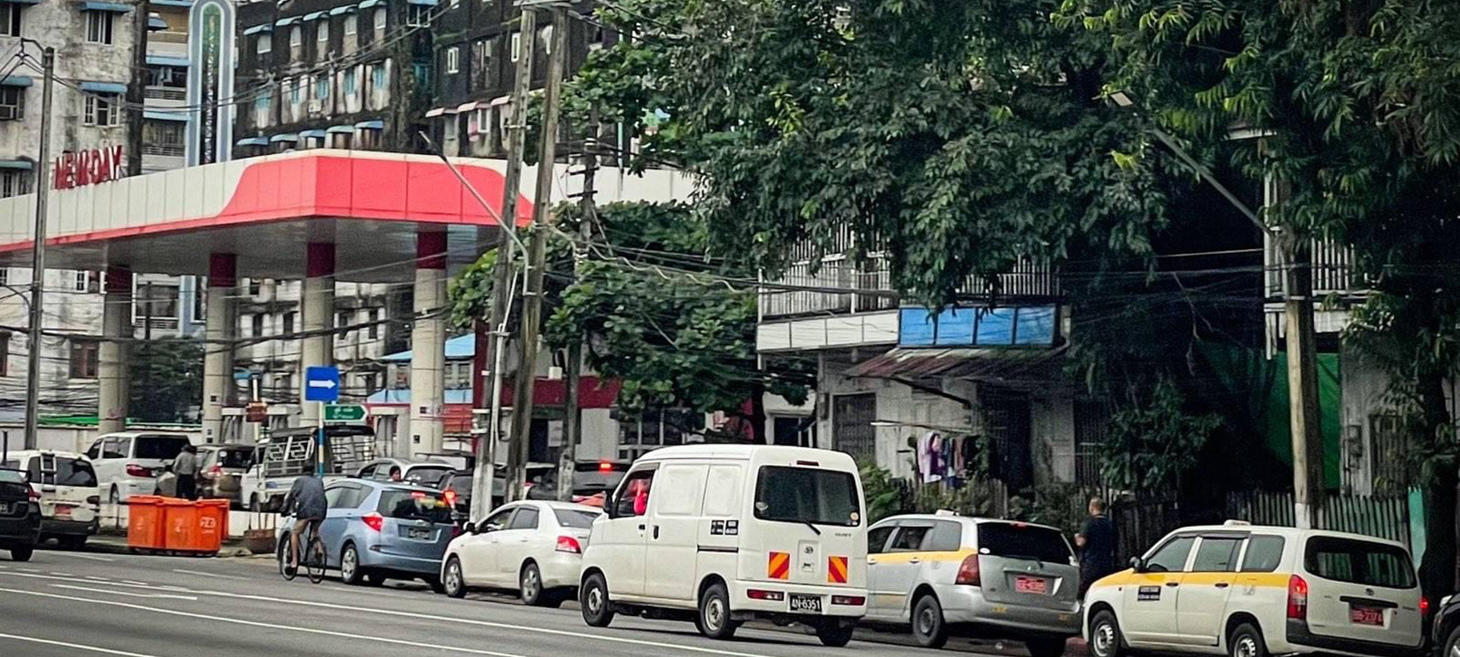
Fuel Importers Say Junta’s Crisis Plan Will Only Ease Shortages for a Month
Fuel importers in Myanmar have criticized the junta-controlled Central Bank of Myanmar's (CBM) crisis plan, which involves selling $100 million in U.S. dollars at favorable rates to help them purchase necessary fuel, as a temporary solution that will only alleviate the country's severe fuel shortages for about a month. The plan, announced amid ongoing severe shortages causing long queues at petrol stations and impacting businesses and schools reliant on generators due to frequent power outages, is seen as insufficient. Importers are concerned about the sustainability of fuel supplies as the plan does not address the underlying economic issues, including the kyat's sharp depreciation and low agricultural yields affecting their ability to purchase fuel internationally.
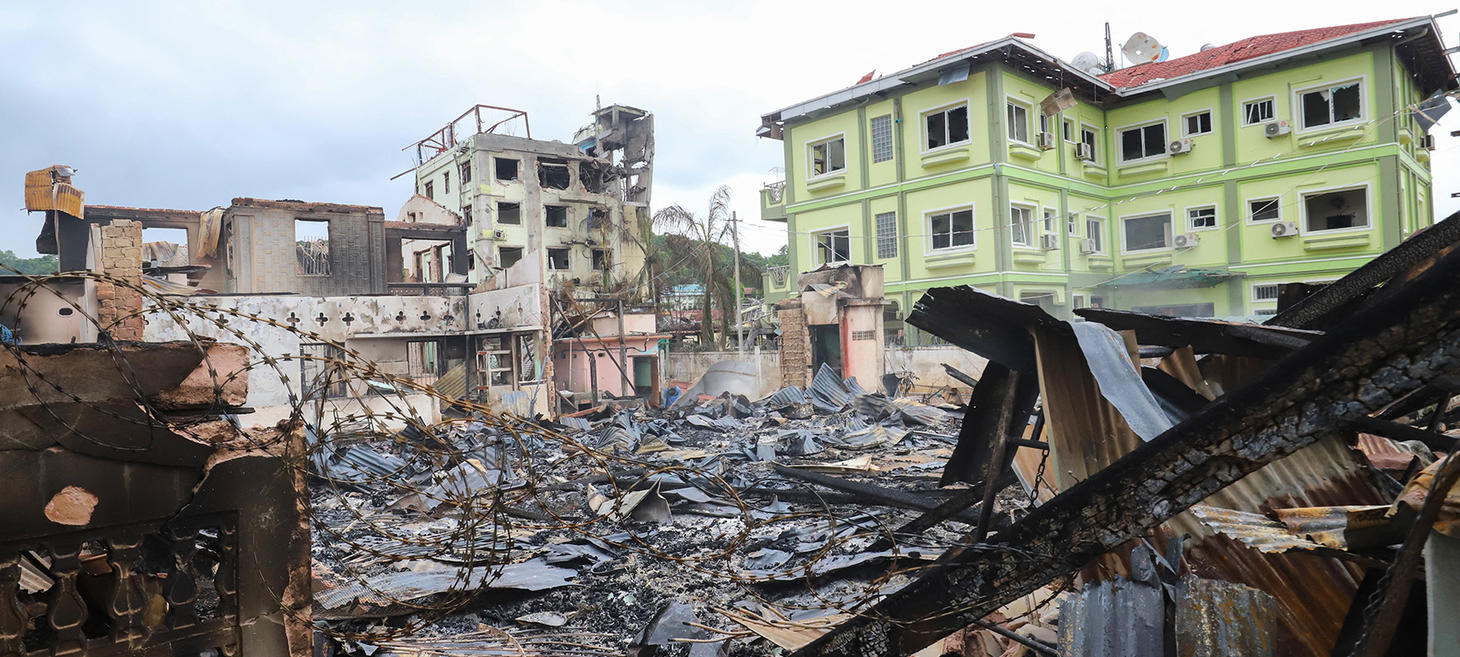
Myanmar’s Junta Is Funding Its War Through Forex Scams, Economists Say
Economists have accused Myanmar's military junta of financing its ongoing conflict through manipulative foreign exchange (forex) scams, exploiting the significant disparity between official and market currency rates to generate substantial profits. This scheme involves coercing businesses and individuals to convert foreign currencies into the local kyat at rates that grossly overvalue the kyat, thereby creating an annual arbitrage opportunity estimated at around $1.8 billion. This amount is roughly equivalent to the regime's annual defense spending, highlighting the scale of exploitation. The junta's control over forex transactions funds its military endeavors and perpetuates its grip on power, making the forex policies a critical component of its strategy to maintain control.
Foreign Affairs
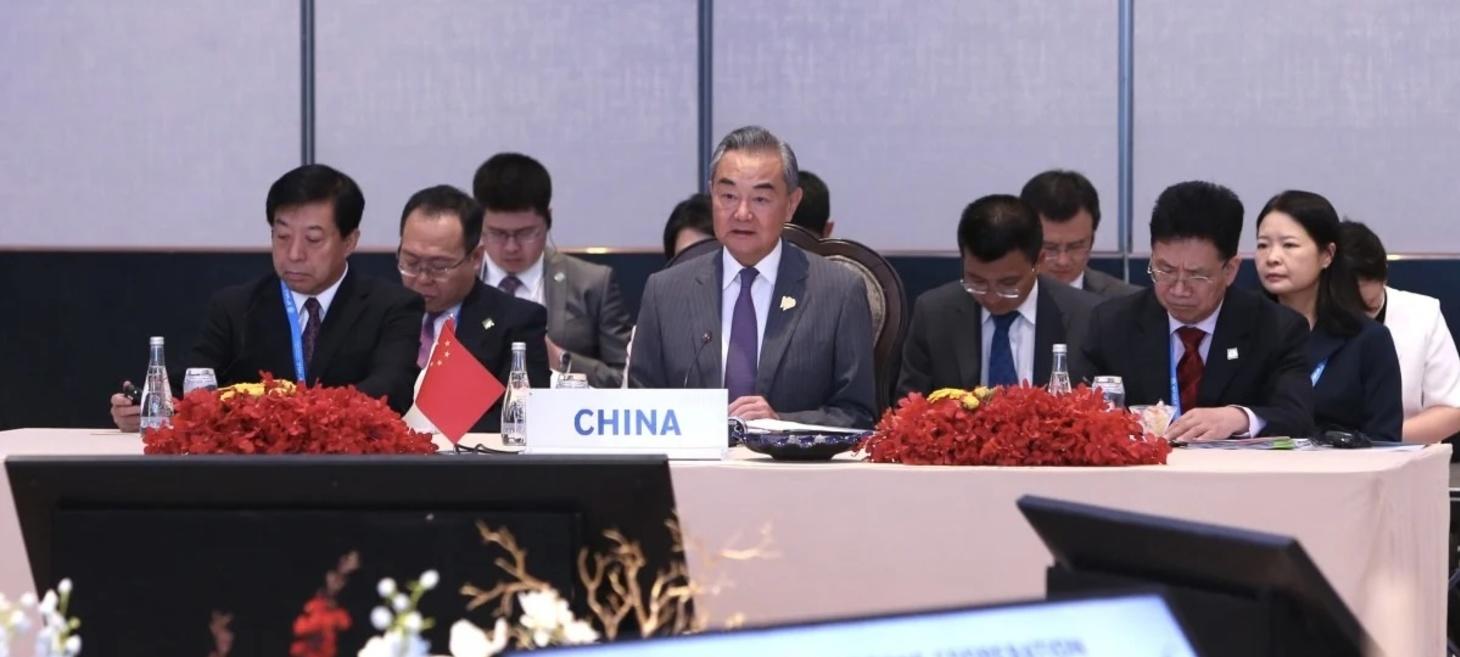
China backs Myanmar junta’s census-plus-election plan to end turmoil - South China Morning Post
China has expressed support for Myanmar's military junta's plan to conduct a census followed by elections as a strategy to resolve ongoing political turmoil. During a meeting in Chiang Mai at the Lancang-Mekong Cooperation Forum, Chinese Foreign Minister Wang Yi encouraged neighboring countries to back this initiative, emphasizing the importance of regional stability and peaceful reconciliation. Despite Myanmar's military losing significant control over its territory and facing internal rebellions, China continues to offer technical and aid support for the census, aiming to facilitate a democratic transition. Concurrently, regional discussions also addressed non-traditional security threats like crime at borders, with plans for a ministerial-level meeting to tackle these issues.

Ties Between Warmongering Regimes in Myanmar, Russia as Cozy as Ever
The relationship between Myanmar and Russia has deepened significantly since the 2021 coup, with Russia providing extensive military support and engaging in economic ventures despite global criticism. Russia has supplied Myanmar with a wide range of military equipment and has been involved in training Myanmar military personnel. Economic ties include Russian interests in Myanmar's oil, gas, and mining sectors, with specific projects in regions like Kachin State and Sagaing Region. This partnership is underscored by high-level visits and discussions, reflecting Russia's strategic interest in maintaining a strong presence in Myanmar to counterbalance Western and Indian influences despite the ongoing internal conflict and international condemnation of Myanmar's military actions.
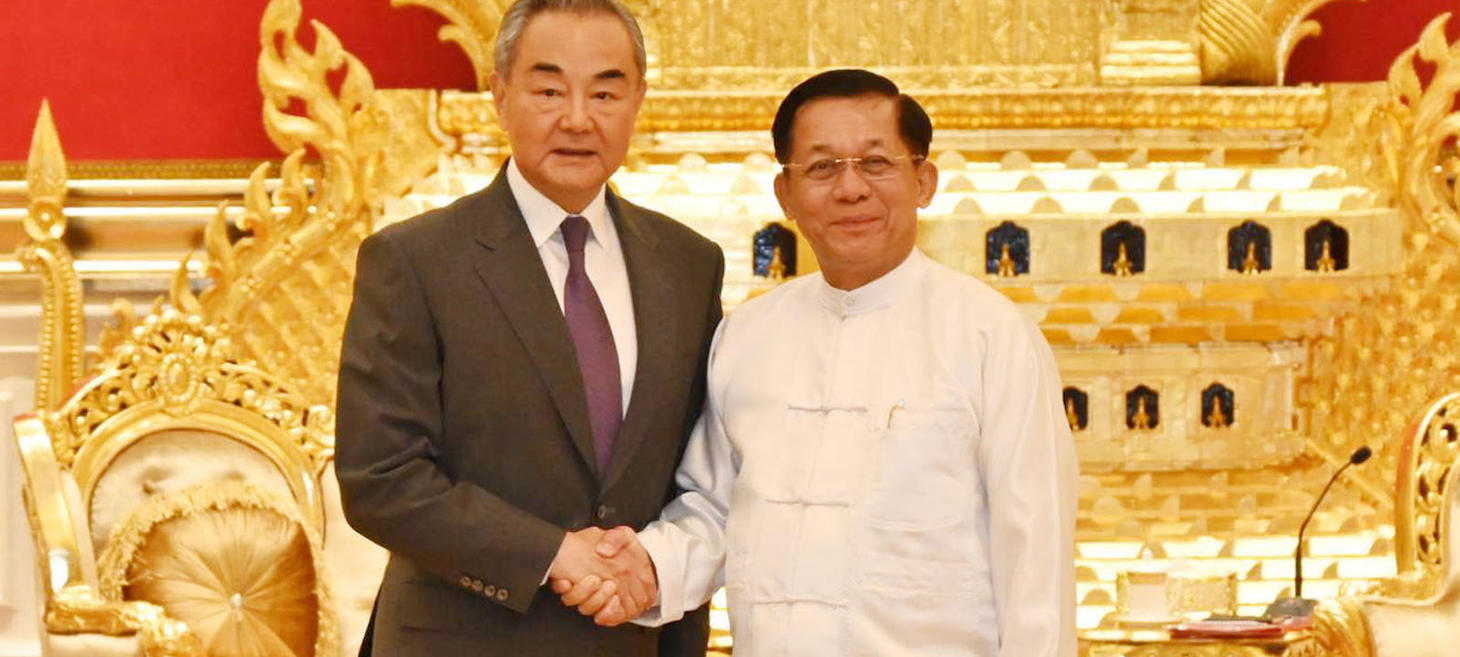
US Renews Support for Myanmar Opposition as China Meets Junta
The United States has reaffirmed its support for Myanmar's democratic opposition, including the shadow National Unity Government and key ethnic rebel groups, as China continues to engage with the junta. Senior U.S. officials held virtual meetings with these groups, praising their collaborative efforts towards establishing a federal democratic Burma and promising to expand direct support and assistance. This commitment comes as China, a major ally and arms supplier to the junta, met with junta leaders and endorsed their transition plans, which include a promised election. The junta, however, has been delaying the election timetable, highlighting the ongoing geopolitical tug-of-war over Myanmar's future.
Military
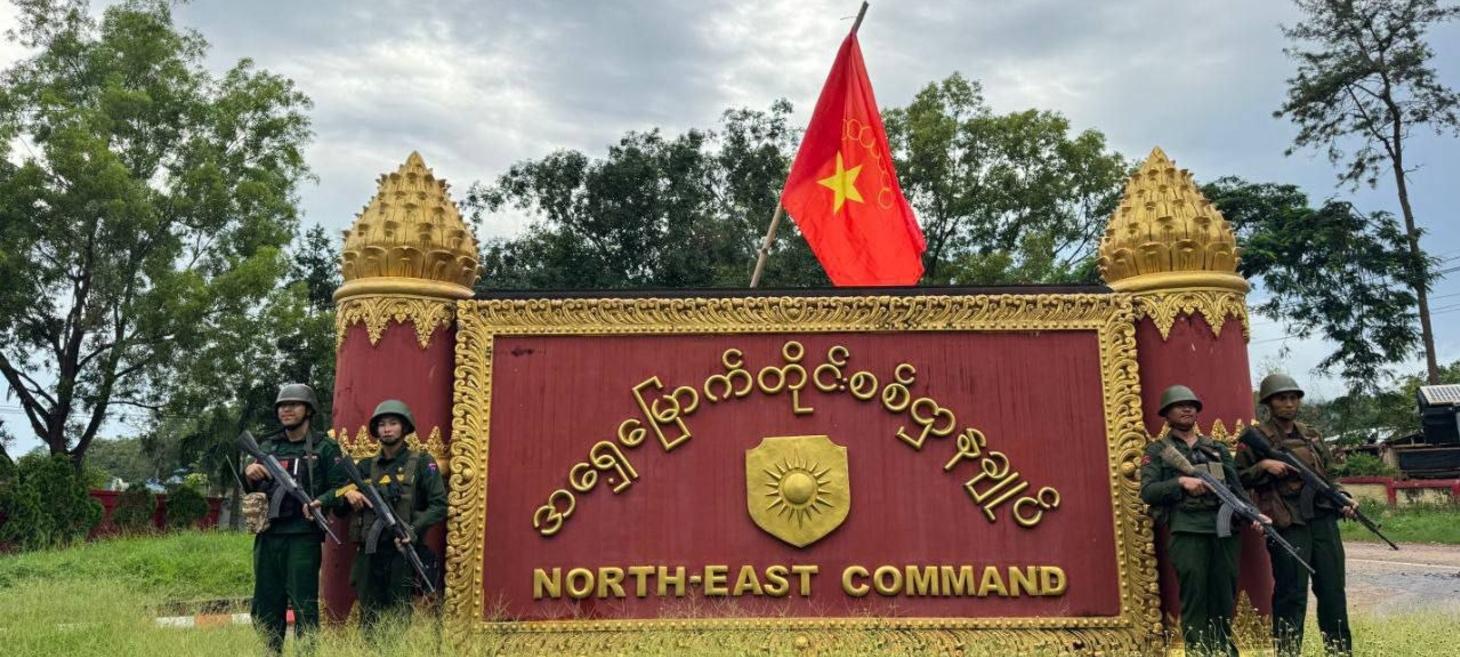
Myanmar junta restations northeastern command HQ after loss in Lashio
Following the Myanmar National Democratic Alliance Army's (MNDAA) capture of the Northeastern Regional Military Command headquarters in Lashio, the Myanmar military has relocated its command center to Mongyai. This strategic shift comes after the MNDAA, part of the Brotherhood Alliance, intensified their offensive in northern Shan State, leading to significant territorial losses for the junta. The relocation represents a tactical adjustment by the junta in response to the evolving military landscape in the region, as they continue to face robust resistance from various ethnic armed organizations.

Under-Fire Myanmar Junta Boss Promotes Protégés to Shore Up His Position
Facing mounting pressure from historic military defeats, Myanmar's junta chief, Min Aung Hlaing, has strategically promoted three lieutenant generals from his inner circle to the rank of general. These promotions, involving key figures such as Aung Lin Dwe, Nyo Saw, and Ye Win Oo, are seen as an effort to consolidate power and stabilize his leadership within the State Administration Council. This move comes amid rumors of internal coups and growing dissatisfaction within the regime, highlighting Min Aung Hlaing's reliance on a network of patronage amidst the junta's precarious position.
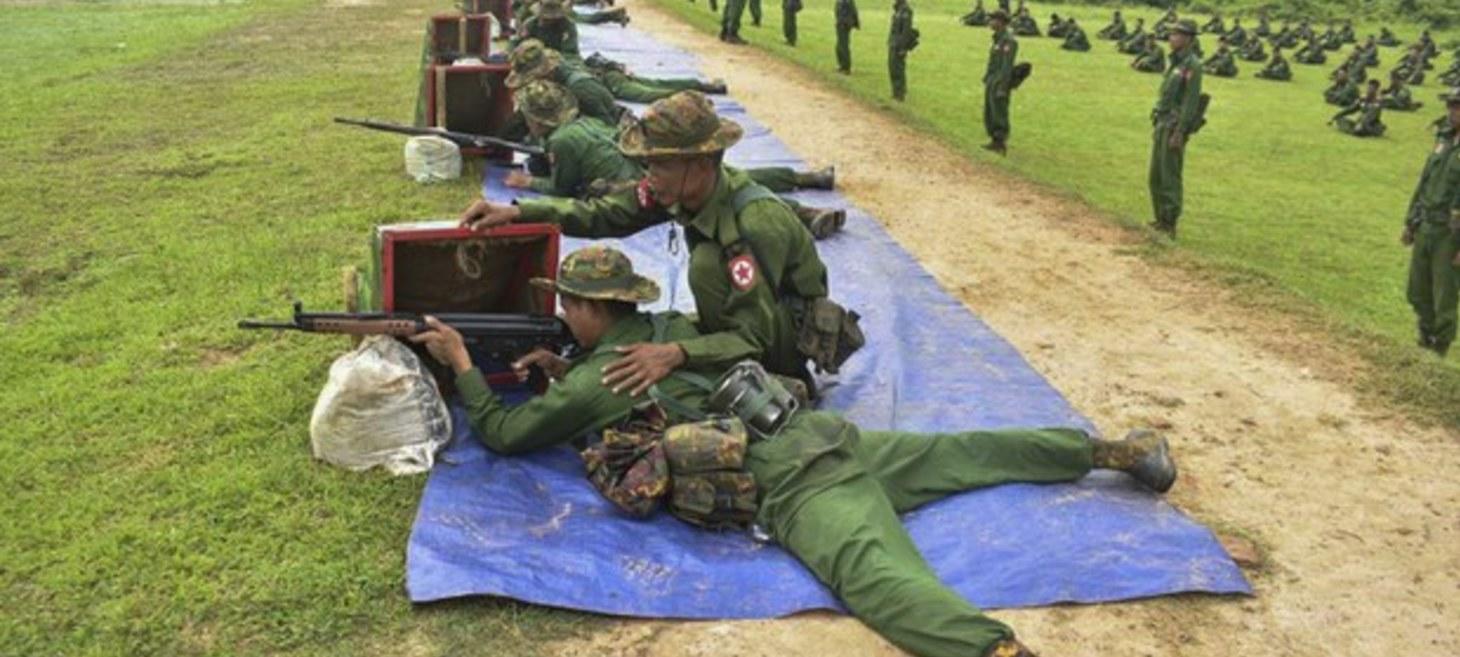
New junta ‘security’ committee would arm Myanmar’s local communities
Myanmar's junta has established the People’s Security and Counter-Terrorism Central Committee to oversee security in villages and wards by arming and training troops, as revealed by a leaked document. This move, seen by observers as an attempt to coerce civilians into military service amidst the junta's battlefield losses and troop shortages, involves distributing weapons and military equipment, and providing combat training. Critics argue that this strategy will only escalate violence and instability in local communities, potentially arming those opposed to military rule and exacerbating the conflict. The committee's formation, which has not been publicly announced by the junta, reflects a desperate measure to maintain control as the military struggles with defections and a diminishing capacity to manage security threats across the country.
Telecommunications
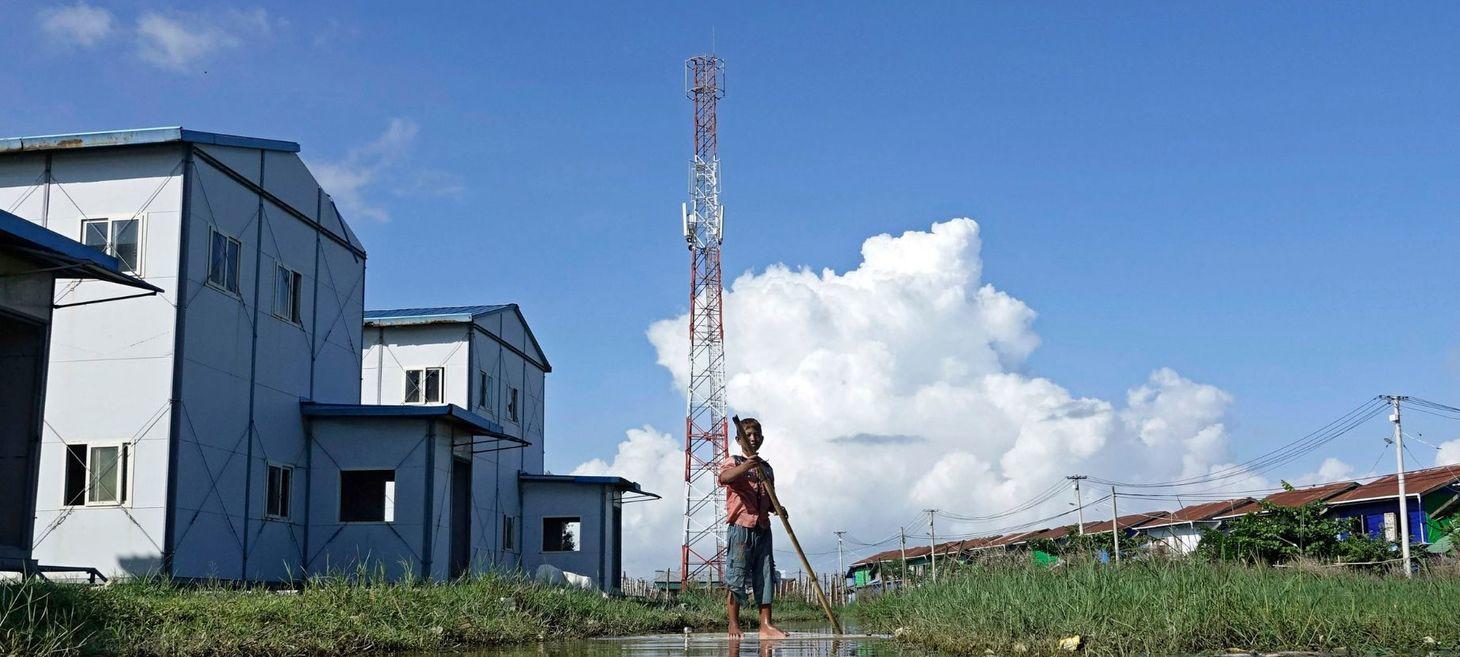
Telecoms blackouts aggravate Myanmar civilians’ suffering in horrific war
In Myanmar, frequent telecommunications blackouts have severely impacted civilians, particularly in conflict zones, pushing them back to a pre-digital era without mobile phones or internet access. Since the 2021 coup, these outages have become common, especially near battlefields, disrupting daily life and isolating individuals from their families and the outside world. For instance, a resident of Yangon has been unable to contact his girlfriend in the northern jade mining town of Hpakant for over eleven days due to these blackouts. The situation highlights the broader challenges faced by the population amidst ongoing military conflicts and junta control, exacerbating the humanitarian crisis in the region.